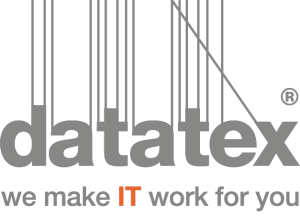All about Digital Product Passports in the Textile and Apparel
As part of Textile Solutions Group, Datatex explores how Digital Product Passports (DPPs) are reshaping traceability and compliance in the textile and apparel industry.
Textile Solutions Group brings together leading software providers that cover the entire textile and apparel value chain:
Datatex – ERP for textile and apparel manufacturing
Setex – MES and shop floor automation
Geasoft – ERP for leather, footwear, and accessories
Limonta Informatica – Tailored Digital Solutions
Penelope CAD – Advanced CAD/CAM solutions for fashion and apparel
In this article, we focus on how our specialized ERP systems support DPP readiness—by managing traceability, collecting structured product data, and helping manufacturers comply with upcoming sustainability regulations.
What is a Digital Product Passport (DPP)?
A Digital Product Passport (DPP) is a structured digital record that contains detailed information about a product’s materials, origin, lifecycle, and environmental impact.
In the textile and apparel industry, this includes data like fiber composition, manufacturing location, dyeing processes, carbon footprint, and care instructions.
The goal? Transparency across the supply chain, better recycling and reuse, and compliance with upcoming EU regulations, particularly those under the European Green Deal and Circular Economy Action Plan.
Why Are Digital Passports Important for Textile and Apparel?
The textile industry is under increasing pressure to be more sustainable, circular, and traceable. DPPs are not just a trend — they are quickly becoming a regulatory requirement.
Key reasons why digital passports matter:
Regulatory compliance: Especially with the EU Strategy for Sustainable and Circular Textiles, DPPs will become mandatory for many categories by 2030.
Full lifecycle traceability: Brands need to know every component — from raw fiber to final garment — to back up sustainability claims.
Facilitates circularity: Enables better reuse, resale, and recycling by providing all necessary data to second-hand platforms, recyclers, or consumers.
Consumer trust: Transparency boosts brand loyalty, especially with younger, sustainability-conscious buyers.
What Should Be Included in a Textile and Apparel DPP?
Depending on the product type, a DPP may include:
• Material composition and origin (e.g., organic cotton, recycled polyester)
• Country and facility of production
• Environmental footprint (e.g., CO₂ emissions, water use)
• Certifications (GOTS, OEKO-TEX, etc.)
• QR code or NFC chip for access
• Repair and recycling instructions
How Specialized ERP System Can Help?
While DPPs may sound like a labeling issue, they are in fact a data challenge. Brands need systems that can collect, centralize, and validate data across suppliers, production sites, and distribution channels.
Datatex NOW ERP Solutions are vertically seamlessly integrated from fiber to garment, uniquely supporting both, textile and apparel manufacturers in meeting DPP requirements by providing tools for traceability in textile manufacturing, inventory and quality management, and lifecycle data structuring — all in one system:
Collecting traceability data from raw materials to finished goods: Our system provides full traceability for every single garment unit sold—right through to the fiber origin—including detailed tracking of all accessories and packaging materials used.
Linking certifications and supplier info to product codes
Managing updates to product lifecycle data
Exporting structured product data for DPP formats
Even if DPP isn’t yet mandatory for your products, investing in structured, transparent product data today will save major headaches tomorrow.
How Digital Product Passports Are Accessed
Digital Product Passports are usually linked to products via QR codes or NFC tags, allowing users to scan and view the product’s data online.
These digital labels are typically embedded into the garment label and can be connected to real-time data managed by ERP systems.
Looking Ahead
As the industry moves toward full digital traceability, textile and apparel companies need to prepare. Digital Product Passports aren’t just about compliance — they’re about staying competitive in a transparent and sustainable future.
The Regulatory Push Behind DPPs
Several EU-level regulations are driving the implementation of Digital Product Passports (DPPs), making them a legal obligation rather than an optional upgrade.
• Ecodesign for Sustainable Products Regulation (ESPR): This upcoming regulation will introduce mandatory digital product passports for textiles and other goods. It establishes performance and information requirements related to durability, recyclability, and environmental impact. DPPs are the tool through which this data will be communicated. More at: https://ec.europa.eu/commission/presscorner/detail/en/ip_22_2013
• Extended Producer Responsibility (EPR) for Textiles: Producers will be responsible for the entire lifecycle of textile products, including collection and recycling. This regulation promotes traceability and monitoring of material flows, which aligns perfectly with DPP implementation.
• REACH Regulation (EC No 1907/2006): This regulation governs the use of hazardous chemicals in textile products. It requires full transparency and traceability throughout the supply chain, which a DPP can support by documenting chemical data. More at: https://ec.europa.eu/environment/chemicals/reach/reach_en.htm
Fighting Greenwashing with Verified Data
Greenwashing is a growing concern in the textile and fashion industry. DPPs help combat this issue by providing consumers and regulators with access to detailed, verifiable data about each product’s lifecycle, environmental footprint, and certifications. This transparency builds consumer trust and shields brands from reputational and legal risk.
Ready for Digital Passports?
Thanks to our vertically integrated ERP, we help textile and apparel companies achieve end-to-end transparency and compliance—down to each garment and its components.
Future-proof your operations with Datatex NOW ERP System. Ensure compliance, boost transparency, and lead your industry’s shift toward circularity.
→ Book a consultation





